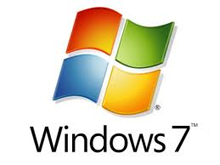Microsoft: We want 70 percent of the enterprise on Windows 7

Microsoft is aiming for 70 percent of enterprise PCs to run Windows 7 by the middle of 2013.

According to The Register, sources close to the technology giant say Redmond HQ wants to make sure the majority of personal computers used by businesses are running Windows 7 by the end of the firm's current fiscal year in June next year.
Microsoft claimed this summer at the company's annual global partner conference that 50 percent of enterprise PCs are currently running the Windows 7 operating system -- but this isn't high enough for the firm.
As all eyes are on Windows 8 after its official launch last week, the effort required to boost Windows 7 deployment may have to take the second seat in the firm's priorities.
One of the publication's sources said that "Microsoft doesn't have a coordinated worldwide effort to get Windows 7 deployed," and when asked how boosting Windows 7 deployment could reach usage levels of 70 percent, Microsoft chose not to comment.
The previous markup of 50 percent is in itself questionable and has faced continual dispute. The figure may include smaller firms, where company-wide deployment of a new operating system isn't such a logistical nightmare, but for large businesses, migration can be a disruptive and painful experience.
One Microsoft partner said there is "no chance" for firms with over 500,000 PCs to migrate before the deadline, saying "It's too hard, and the economy sucks and people aren't throw enough money at it."
One incentive for businesses to migrate is the upcoming end of support for Windows XP, which will finish on 8 April 2014. After this date, customers still using the older operating system will no longer receive updates or security fixes, and if something goes wrong, the only option is to request individual support. An expensive alternative to upgrading, certainly -- but for large firms dealing with application dependency, this still may be the cheaper option.